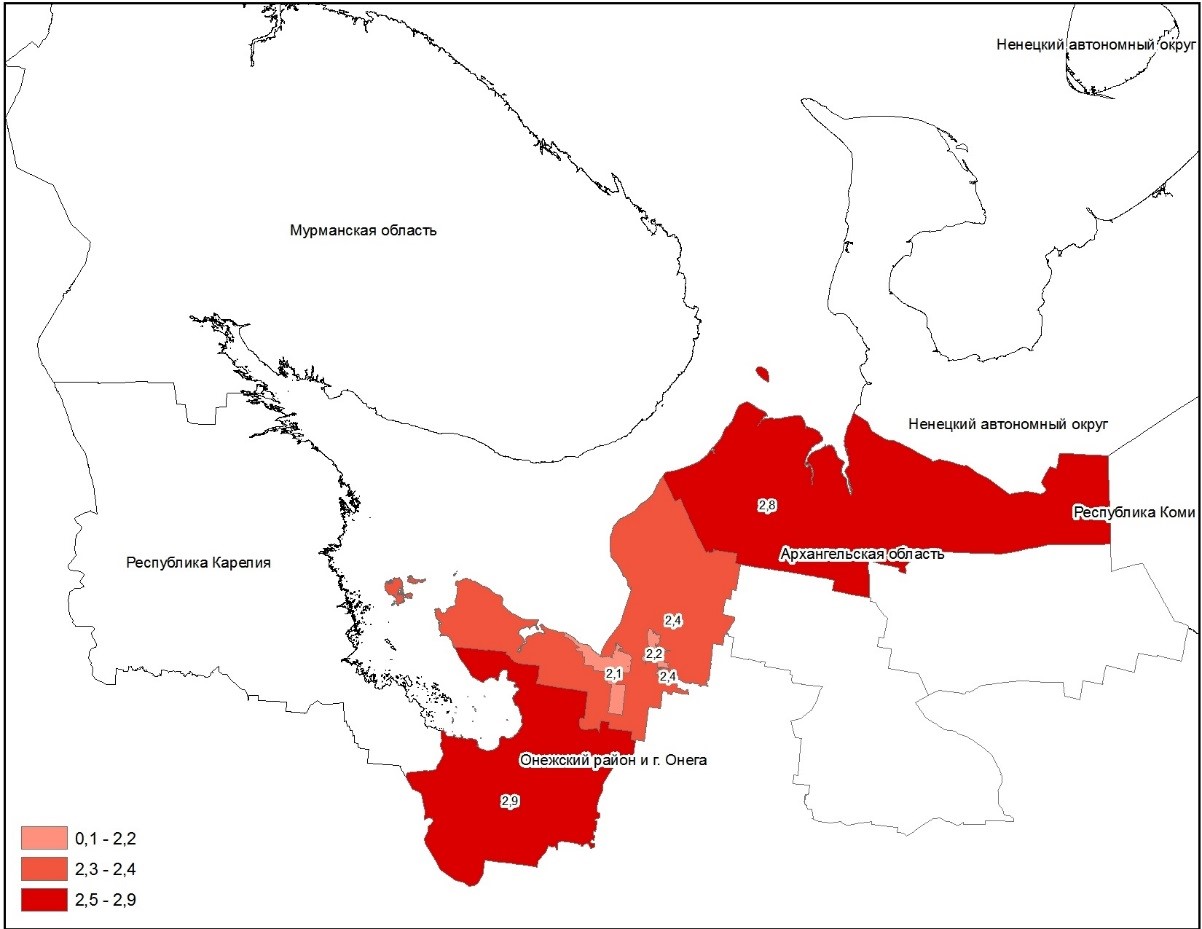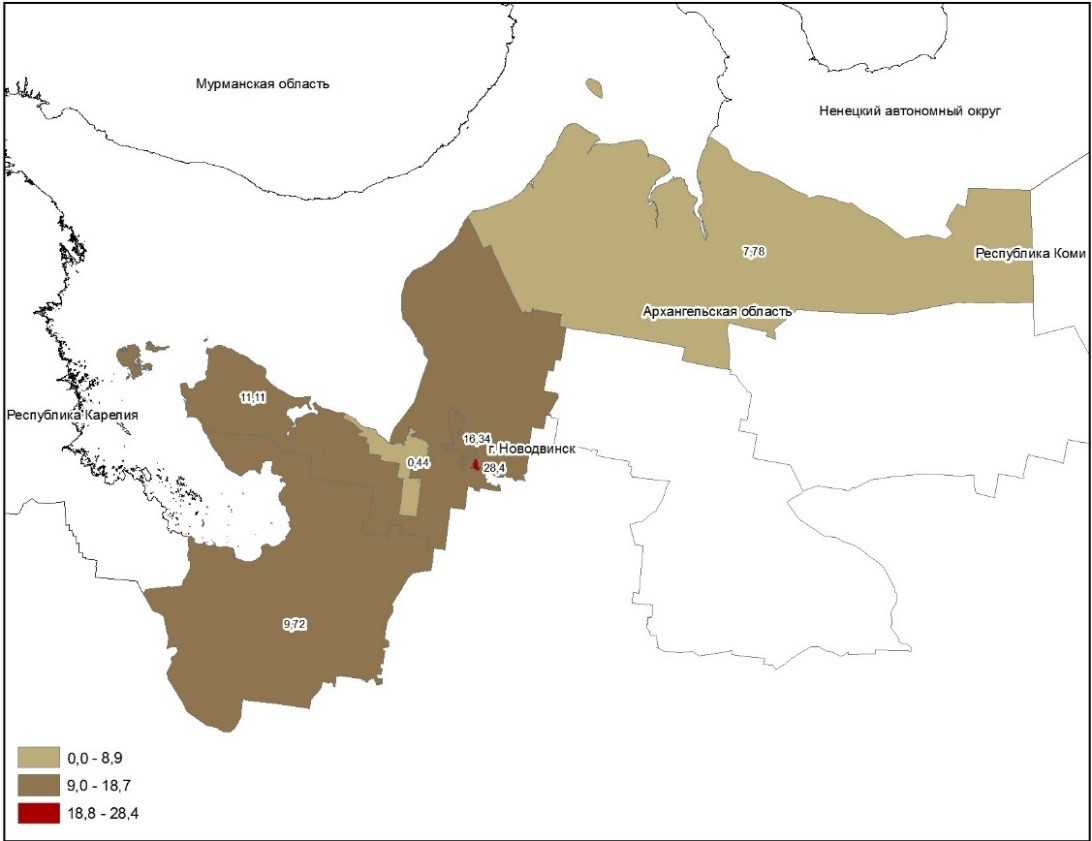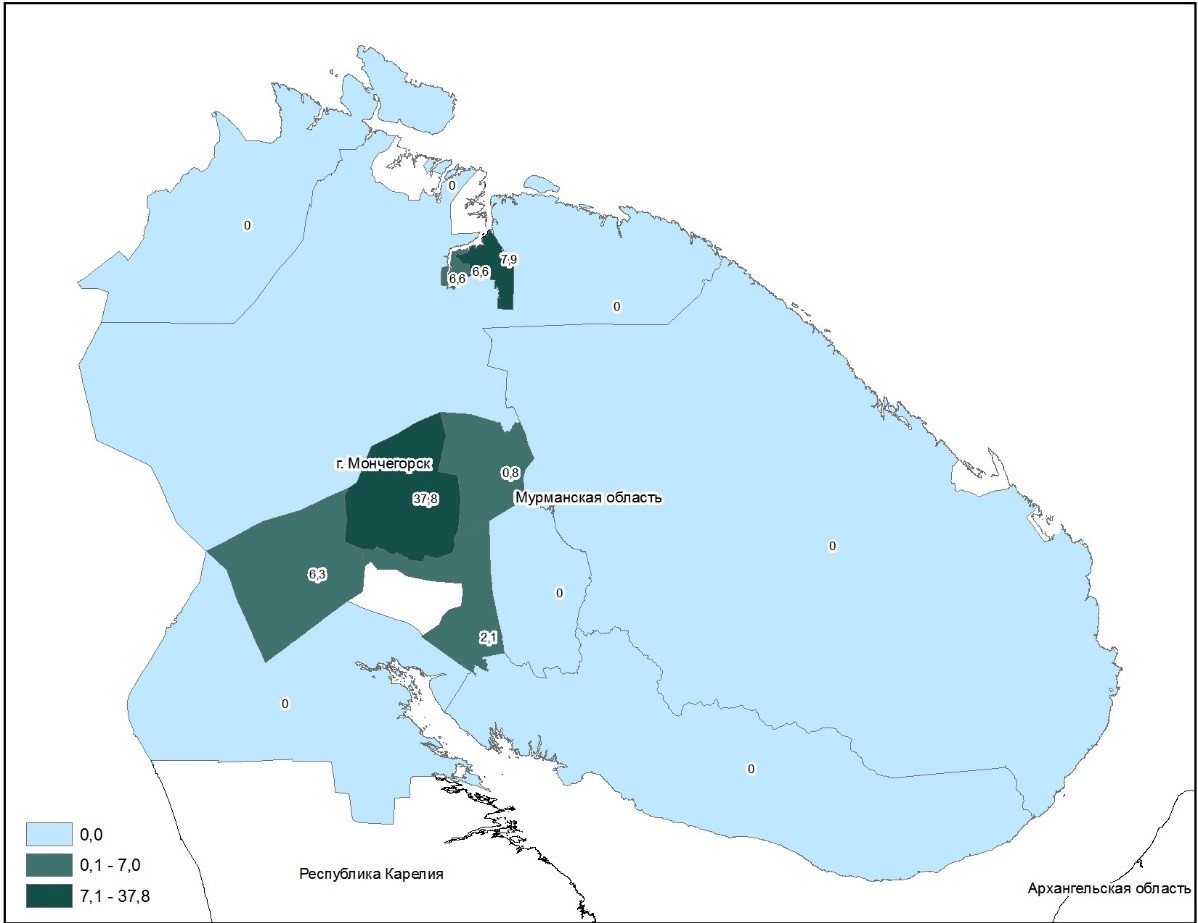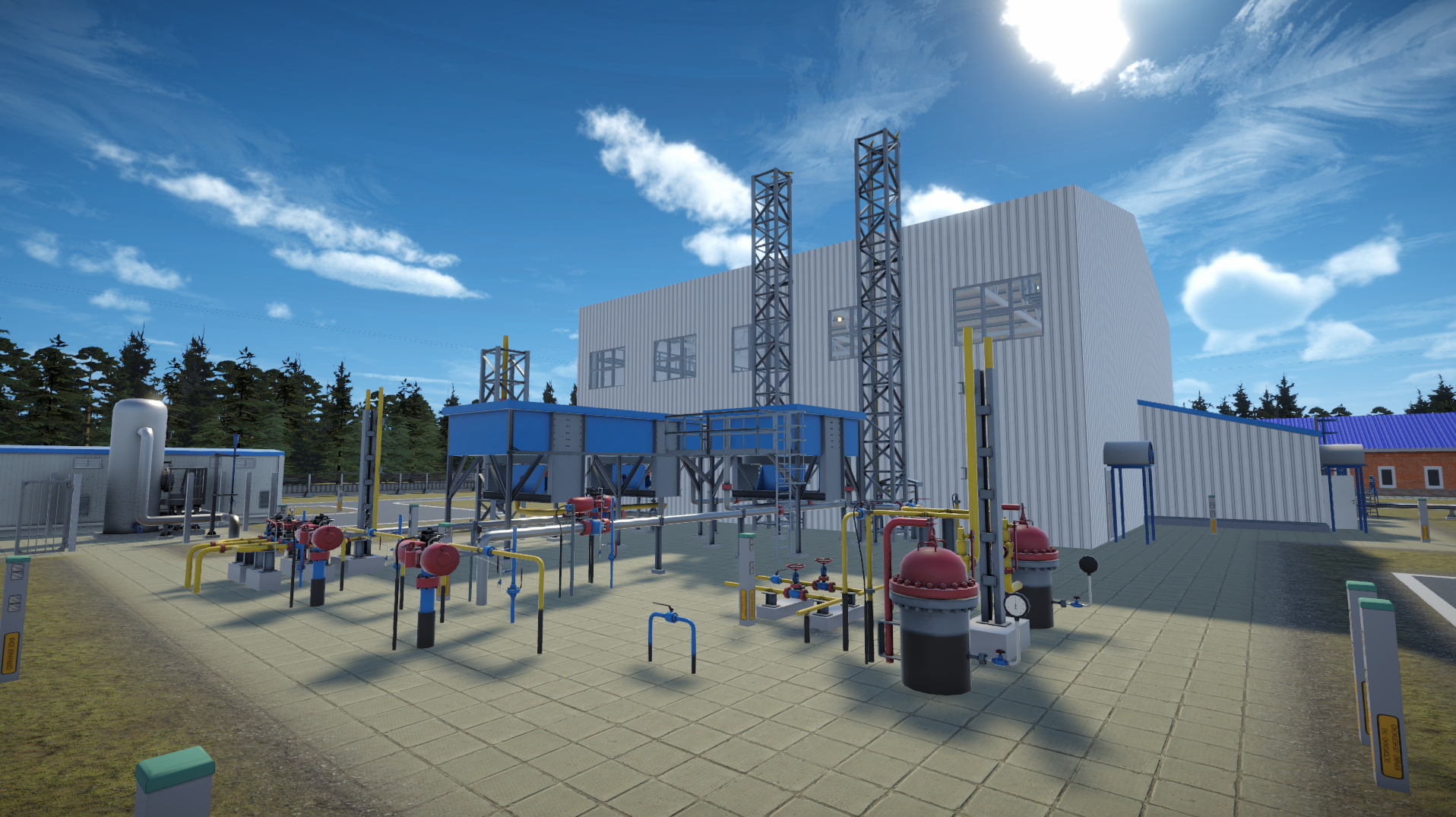‘Sanitary and epidemiological well-being of the population in the Arctic zone of the Russian Federation’ geoportal has been piloted in two regions
In 2022, the preliminary testing of the basic version of the geoportal for the sanitary and epidemiological well-being of the population in the Arctic zone of the Russian Federation was conducted on the territories of the Murmansk and Arkhangelsk regions.
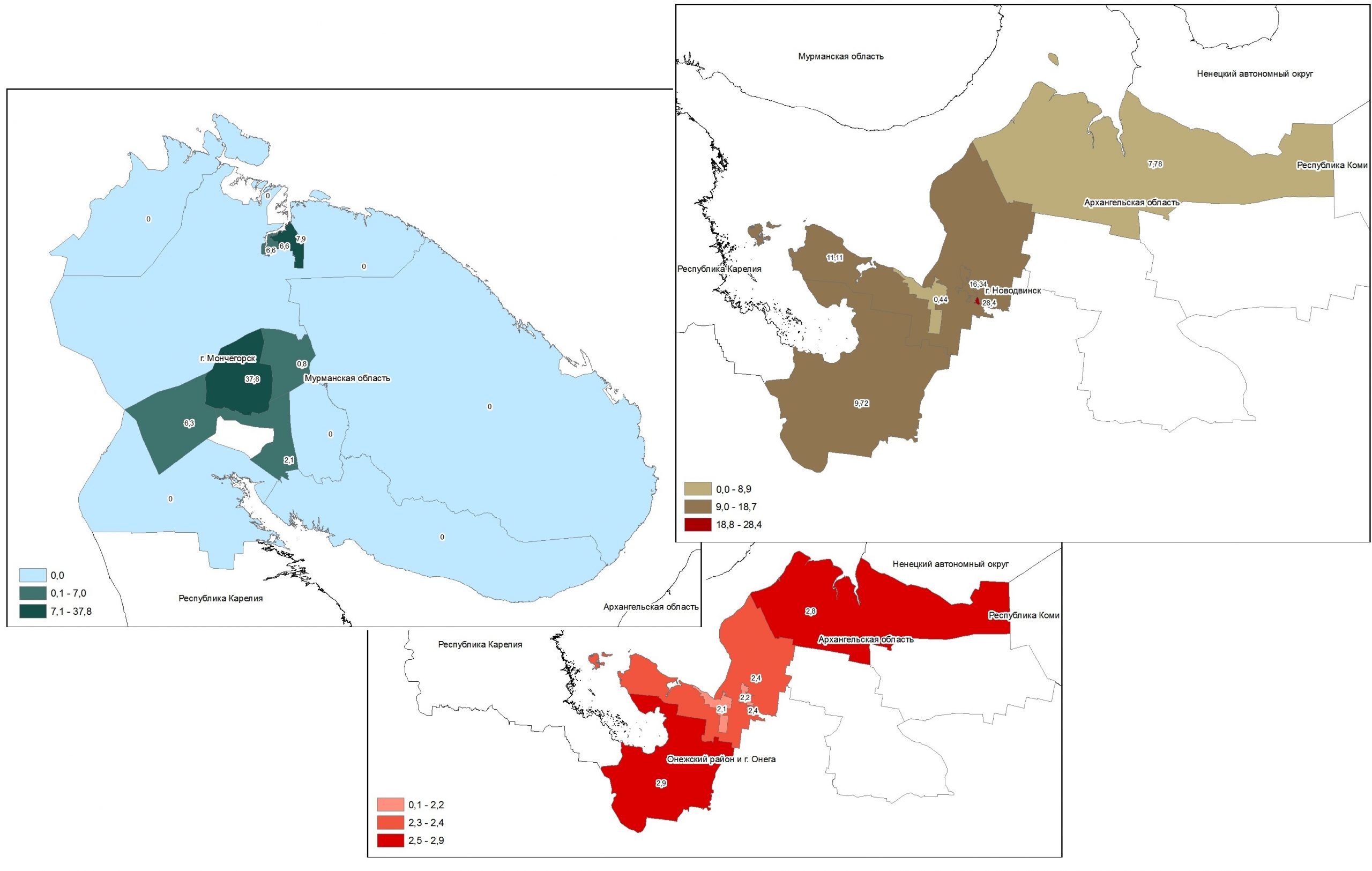
The information system, comprising a database and an interactive map, permits the analysis of the impact of negative environmental factors on population health. The geoportal analyses provide a basis for proposing integrated development strategies for Arctic territories. These strategies take into account a range of indicators, including habitat quality, population morbidity, and medico-demographic and socioeconomic indicators.
The project was initiated in 2021 by the Industrial Systems for Streaming Data Processing Laboratory of the SPbPU NTI Competence Centre in collaboration with the North-West Public Health Research Centre.
The geoportal enables visitors to monitor alterations in a range of environmental and public health indicators, including drinking water, atmospheric air quality, and other habitat factors. Additionally, it allows for the observation of demographic and socioeconomic trends, such as mortality rates and water supply. All data can be visualized on a map and subjected to dynamic analysis over the last 15 years. Furthermore, geoportal incorporates supplementary software to streamline the procedures of data acquisition and processing. Access to the system is provided through a personal account, with a system of rights differentiation for different categories of users.
Based on the data collected during the testing phase, an integrated assessment of the quality of drinking water in centralized water supply systems in the Arkhangelsk and Murmansk regions was conducted in 2022. The anticipated number of additional cases of malignant neoplasms over the entire life span was calculated for each settlement in the pilot regions based on the calculated values of carcinogenic risk due to the content of carcinogenic substances in drinking water and data on the size of the resident population. The study demonstrates that the consumption of water from these regions does not pose a significant carcinogenic or non-carcinogenic health risk.
‘In the course of 2022, specialists from the Departments of Rospotrebnadzor and the North-West Public Health Research Center conducted a series of tests to evaluate the performance, speed, and user-friendliness of the system. Based on the findings of the pilot testing, the primary areas for enhancement of the geoportal were identified, namely the expansion of the tools for statistical analysis of data and the optimization of its performance,’ said Vladimir Fedorov, senior researcher at the North-West Public Health Research Center.
According to Nadezhda Tikhonova, a junior researcher at the Department of Habitat and Health Research in the Arctic Zone of the Russian Federation, users will be able to perform more comprehensive statistical data processing in the future. ‘The user will be presented with two potential scenarios, depending on their qualification: automated and manual data processing. In the first instance, the system will present the user with a series of pre-configured solutions in the form of a variety of statistical processing scenarios. These range from a comprehensive description of the data set to the establishment of cause-and-effect relationships between factors and population morbidity, as well as the visualization of results on a map and through the use of histograms. A more experienced user will be able to select any tools for working with the data set,’ stated Nadezhda Tikhonova.
‘The geoportal’s functionality, comprising correlation, regression, and cluster analysis algorithms, will enable users to compare the health of residents and the environment in different territories, make predictions, and identify dependencies,’ said Marina Bolsunovskaya, head of the Industrial Systems for Streaming Data Processing Laboratory at the SPbPU NTI Center.
As stated by the developers, the geoportal will facilitate the assessment of the impact of environmental factors on the health of the population in the Russian Arctic, as well as accelerate the development of proposals to enhance the sanitary and epidemiological well-being of the population in the Arctic zone of the Russian Federation.
